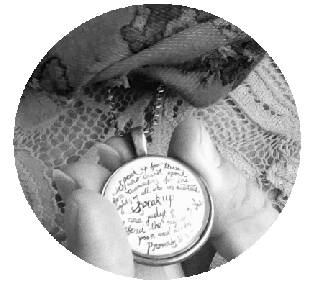Handle with Care: Honoring the Stories of Survivors
We all have seen the pictures: girls with bar-codes on their backs, chained to walls, stuffed and packaged like meat. Movies like Taken tell us stories of kidnapping and being sold. We read about survivors’ stories, which only focus on the nitty-gritty details to add shock value. Instead of educating on the issue of sexual exploitation, these tactics only serve to reinforce misleading stereotypes about the appearance and behavior of an individual who is being sexually exploited. At best, these are innocent mistakes, but these mistakes can throw survivors into situations of being re-exploited and re-traumatized for the profit of the very organizations that seek to help.
How does this happen? The definition of exploitation is: “the action or fact of treating someone unfairly in order to benefit from their work/resources.” [1] For survivors, this can look like not being paid for speaking engagements in which they share the most vulnerable parts of their story. It can look like photos being used without their permission by organizations to promote fundraising on their websites. Also, it can look like having their names used, or any part of their experiences being shared without their consent and with details of their stories changed.
Let’s take a look at the keywords here: not being paid, without their permission, used, without their consent…all of these are common experiences for survivors. It may be shocking to think that well-meaning organizations and individuals could participate in re-exploiting and re-traumatizing survivors, but it is a risk in the work of advocacy. Passionate people still make mistakes when they are trying to help others.
For organizations, churches, and advocates, we need to recognize the sacredness of the survivor’s story. No one wants the darkest parts of their stories aired without consent. Yet, because the issue of exploitation is so vast, we want to share the newest shocking raid on the internet, or may even share parts of a survivor’s story that you know with another person. We excuse these actions on the basis of trying to educate, but how would they feel if they heard what they told you in confidence shared with one of your friends?
The survivor’s story is sacred; it is an experience in which they alone have the privilege to invite others. It is important to be aware of how this is never easy for the survivor because it means revisiting their trauma. So, although their stories are shared in order to educate and empower others to be a part of the anti-trafficking movement, sharing survivor stories has a personal cost none of us can take lightly.
Here are just a few of the ways we can honor survivor stories:
[1]Dictionary.com
About the Author
Grace is a survivor of human trafficking who is working on a degree in professional psychology. She is passionate about being a part of the movement to end slavery by providing trauma-informed services to fellow survivors after her schooling is finished. She is an avid reader, loves to create art and music, play with animals, and take note of the little bits of beauty that make up ordinary life.





